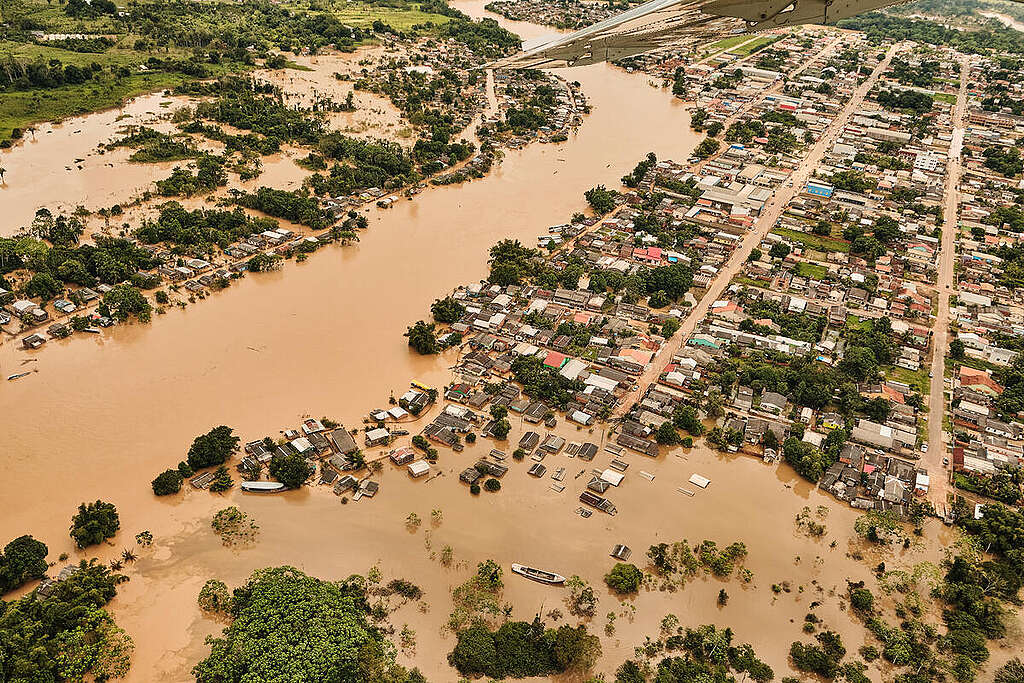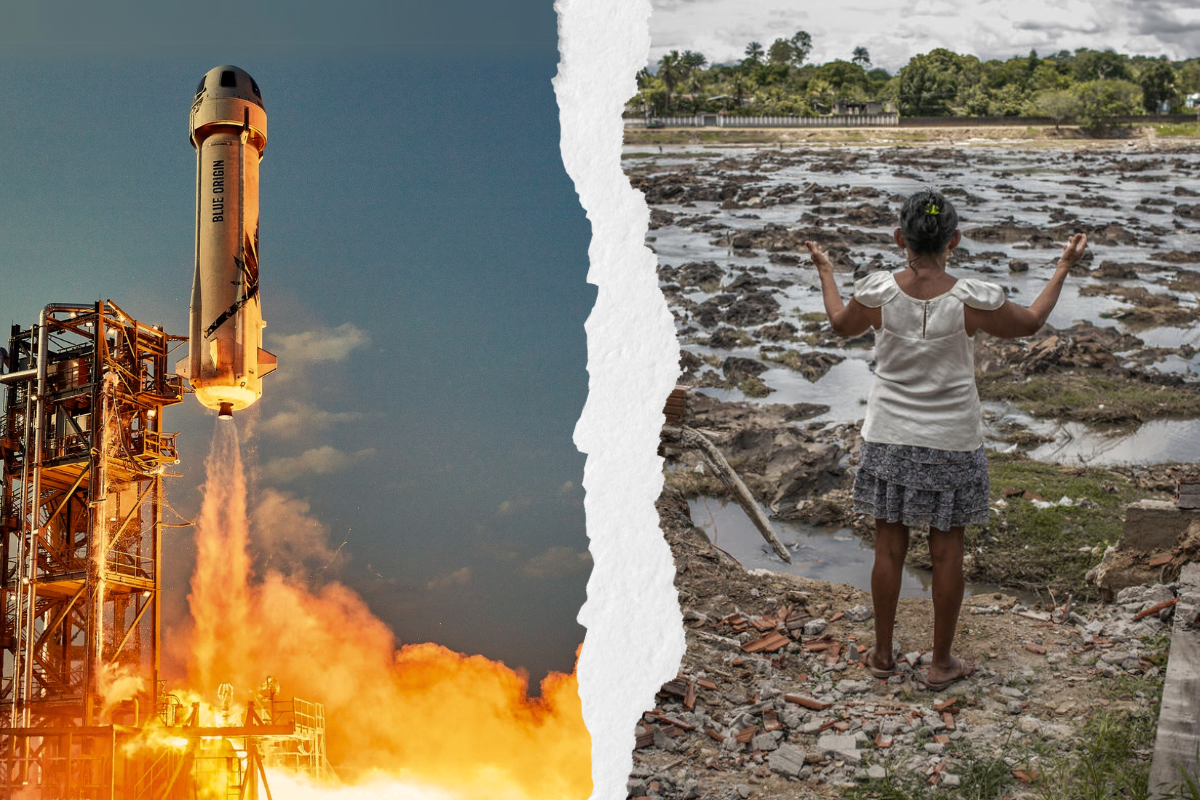Fossil fuels are turbo-charging extreme weather events and people all over the world are suffering the consequences. While international Oil and Gas Companies count their billions, vulnerable communities especially in the Global South are counting the losses from the record-breaking floods, wildfires, droughts, and heat waves that these companies are fueling.
Experts say that extreme heat waves will become increasingly frequent and severe due to climate change in the coming years. June was Earth’s hottest on record, topping the mark just set in 2023 and extending the stretch of record-hot months to over a year, according to the European Union’s Copernicus Climate Change Service. Scorching heat across five continents set 1,400 records in June. Billions of people felt the deadly intensity of these heat waves.
Cities in Kuwait and Iraq witnessed several record temperatures that reached 52.8°C, raising widespread concern regarding public safety and how to deal with the heat stress that the body is subjected to during extreme heat waves. Here are some tips for preventing heat-related illnesses, such as heat stroke and heat stress, during episodes of extreme heat.
Knowing how to stay cool and hydrated will make it easier to endure a heatwave. Here are a few health recommendations to regulate body temperature and keep you safe during episodes of extreme heat:
Drink plenty of water and fluids if possible
The golden rule of hydration is to drink when you feel thirsty. However, when temperatures start rising, it may be difficult to measure how much fluid your body is losing. If you find it difficult to motivate yourself to drink plain water, you can resort to drinks that hydrate the body effectively, such as juices, tea, and even soft drinks.
There are people who do not have access to drinking water – such as unhoused communities, who are even more vulnerable during extreme weather. Society’s most vulnerable communities are often excluded from climate impact solutions, which requires urgent intervention from decision-makers. But while we wait, let’s be good neighbours and allow others to access our taps when necessary.
Avoid drinks that contain large amounts of caffeine or alcohol
Alcohol and caffeine are both diuretics and increase dehydration. Therefore, it is better to avoid consuming them as much as possible. This is especially true for at risk communities who already struggle to stay hydrated due to health complications.
Eat hydrating foods
Any food or drink that contains a high percentage of fluids will hydrate the body. Watermelon, peaches, berries, grapes, and oranges are all good options. Additionally, vegetables that can be juiced, such as cucumbers, celery, and olives, are full of fluids. Liquid-based meals, such as soup, can also help you stay hydrated. Also, consider these options when making donations to people and organisations providing extreme weather relief.
Avoid strenuous outdoor activities and workouts
Try not to exercise during the hottest times of the day. The early morning and afternoon are usually cooler and therefore have a milder impact on your body when exercising. To reduce your fluid loss and maintain a moderate body temperature, choose low-impact exercises, which usually involve slower movements.
Extreme heat is dangerous for everyone, but some are more at risk than others. Most heat-related deaths happen in people whose hearts and other organs have been weakened by illness or old age. Try not to put even more strain on your body if you are at higher risk. We must also ensure to check up on and assist at risk populations.
Immerse your feet in cold water for a few minutes
Research shows that immersing your feet in cold water is a good way to reduce your body temperature and keep your organs safe. This also helps reduce swelling in the ankles and feet.
If you do not have an air conditioner, leave the windows open and turn on the fans for air circulation
Many people do not have air conditioners and have to resort to fans or open windows. Make sure to keep the fan at a safe distance from your bed and not have it pointed directly at you.
Many, however, do not have the privilege of waiting out the heat in the comfort of their homes or offices.The toll of recent heat waves across the world on unhoused people and people who work hard outdoors highlights the urgent need for solutions like cooling centres and adequate shelters.
Polluters Must Pay: Our lives before their Profits!
While these are nifty ways to deal with the immediate impacts of climate change, unless we get to the root cause, things only stand to get worse.
Extreme weather events induced by fossil fuels are becoming increasingly frequent and severe. Big oil companies must be held accountable for fuelling the climate crisis and bear the cost of the devastation they are causing in the region and around the world, but particularly in the Global South.

It’s time to make the polluters pay. Sign now to hold the oil and gas corporations accountable, and support a safe and fair future for all.
Add your nameThis is the stark reality of climate injustice, and we must end it! It is time to force big oil companies to stop expanding oil and gas production around the world and to bear the cost of the climate devastation they are causing everywhere.
Zeinab Othman is the Digital Content Editor at Greenpeace Middle East and North Africa, based in Beirut, Lebanon.



